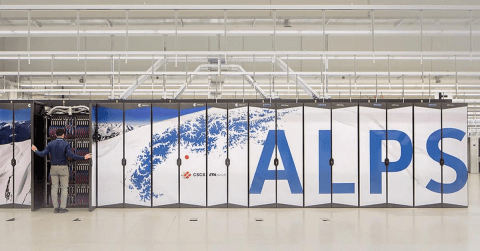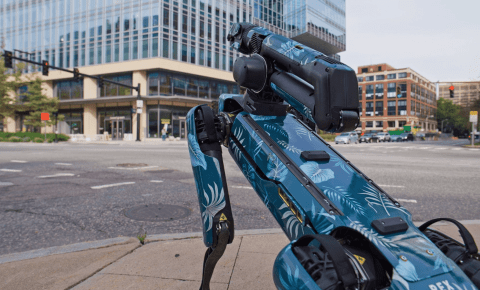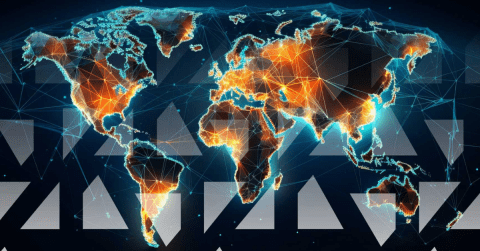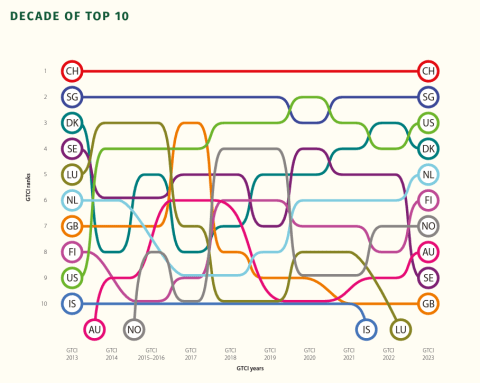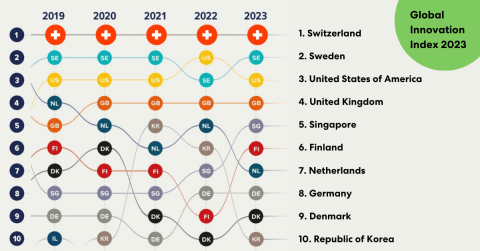This article was first published by Google in December 2023. Read the original article here.
Switzerland is one of Google’s most important research locations in the world. Here’s an interview with Jennifer Wadsworth, Research Coordinator at the AI Center ETH Zurich, and Behshad Behzadi, Vice President of Engineering at Google Cloud in Zurich, about how excellence in academic research and entrepreneurial innovation are combining in the age of AI.
You’ve both been working on artificial intelligence for many years now. Were you prepared for the hype caused by AI chatbots?
Wadsworth: No, and I think most other researchers weren’t either. Since then, there’s been an incredible amount of momentum. Many scientists, some of whom have been working in AI research for decades now, were surprised to see how, in a very short space of time, the subject changed from being a niche topic to one being hotly debated in the public domain, including concerns about future developments. Now the time has come to discuss how we proceed with AI to maximize the benefits of it for society as a whole.
Behzadi: Google has been researching and working on AI for many years, so we were aware of the possibilities. However, it did surprise us how quickly the level of interest rose. Our Google Cloud team in Switzerland receives inquiries from companies about AI use cases on a daily basis now. AI is a further technological step in enhancing productivity, among other things.
How does Google ensure AI is being used and developed in a responsible way?
Behzadi: We work closely with experts from authorities, science, civil society, and economics to responsibly implement ambitious AI projects. By maintaining constant communication, we want to ensure our AI applications prove beneficial for society. At the same time, we are conscious of the risks of AI. AI algorithms must not spread misinformation or infringe on digital privacy under any circumstances. Just like our global CEO, Sundar Pichai, pointed out, AI is too important not to be regulated, but at the same time, AI is too important to not be well regulated.
According to a press release from the European Parliament in March 2023, Switzerland was ranked #7 worldwide for patent applications in 2022. When adjusted for population, Switzerland was #1. Switzerland has also been leading the Global Innovation Index for 11 years running. What is the country doing right?
Wadsworth: Switzerland has always had a tradition of placing great importance on education, and people from all over the world send their children to Swiss schools. ETH has long been considered one of the best universities in the world, especially when it comes to the computer science department. The Zurich region has been home to leading tech companies for decades, which enables them to work with the best talent and researchers. Switzerland provides the optimal basic conditions by adopting a bottomup approach: Projects in which academia and businesses work together are mostly market-driven as opposed to state-initiated. This results in the innovations that the market demands.
Behzadi: As a matter of fact, ETH is one of the key reasons why Google selected Switzerland as a research base 20 years ago. We maintain a close collaboration, mainly with the faculty of computer science. Many of my colleagues studied at ETH Zurich, and others have moved from Google to ETH Zurich to continue researching and teaching there. There are many highly qualified people in AI in Switzerland, so collaboration between industry and research has been cultivated with great care. To give an example, IBM’s research team has been based out of Rüschlikon since 1956.
How do Google and the AI Center at ETH work together?
How do Google and the AI Center at ETH work together?
Wadsworth: The AI Center brings together the best experts from a wide array of disciplines to tackle the major societal challenges we face, such as climate change, global health, and demographic changes. Google plays its part in this by financing scholarships for students and we plan to deepen this cooperation in the future. What’s so special about our program is that the recipients of the scholarships are mentored by two professors from different areas of study, as well as experts from companies, to ensure a holistic approach.

Generative AI is rapidly gaining importance for companies. How does Google Cloud support companies in the use of AI?
Behzadi: Companies now understand that the entry barriers for using AI are significantly lower than a year ago. AI-supported chatbots, such as Bard, Google’s own AI experiment, are trained using a variety of publicly available sources from the internet. Companies can do the same with their own data and build a company-owned chatbot in a very short period of time. Currently, we’re working on a kind of "company brain," which will be able to answer all questions employees may have quickly and efficiently. Such a model will be individually built for each company using Google’s AI infrastructure. However, companies may also benefit from AI by making internal administration or ordering processes more efficient, for example, by using automated invoicing or product demand forecasts, or by improving customer retention or sales approaches using a chatbot.
How have Swiss companies been using AI models based on Google Cloud?
Behzadi: The supermarket chain Coop has used AI forecasting tools in Google Cloud to plan their grocery stock needs 43% more accurately. If you take into account that Coop, according to their own data, sells 1,000 tons of fruit and vegetables every day, this makes a massive difference—not only financially, but also in terms of reducing food waste. There are many more examples in aviation, the travel industry, and the financial sector, as well as public administration. Swiss optimizes their flight operations using an AI-supported data platform in Google Cloud and, among other things, has significantly reduced kerosene consumption. Over a period of three and a half months, the company has saved more than a million Swiss francs this way. Entering simple spoken commands into what is called a conversational interface has had a major influence on simple content creation for internet presence and commercial campaigns for all industries.
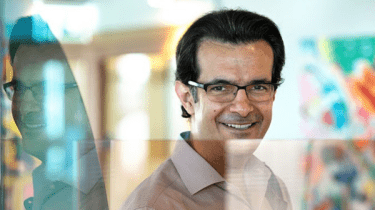
In a few years time, will we ask ourselves why administrative queries or internal company data searches used to be so tiresome?
Wadsworth: That’s already the case in many different scenarios. AI helps us in all our daily routines. I don’t know what I’d do without Google Maps. Look at a paper fold-out map? Out of the question.
Behzadi: Teams based in Zurich were heavily involved in the creation of Google Maps. In some cities, the app now offers immersive views with a strong live experience, which was created by AI using billions of Street View and aerial pictures. AI-supported functions now feature prominently in Google Assistant, including automated answer prompts, Google Lens for information about image content, and Google Photos, which uses AI to fill in the surroundings of images. If we go back a few years, we see that what was new and unusual back then has turned into everyday, run-of-the-mill behavior nowadays. It’s normal for us to use apps to check the weather, navigate to places, and do so much more. AI technology is a part of these tools, as well as a lot of others. One thing is really important here: Everyone remains in control of which functions they want to use.
Wadsworth: The best part of a successful AI application is when users don’t realize they’re using AI. It’s not solely about helping in day-to-day-life or improving efficiency; AI is already helping to save people’s lives today. If you look at breast cancer screenings, radiologists can detect anomalies way earlier than a few years ago by using AI. The earlier the treatment starts, the higher the success rate.
Behzadi: Or consider Google DeepMind's AI project AlphaFold, which can predict the structure and function of all 200 million proteins in a matter of minutes. That’s the equivalent of 400 million years of research. These findings can be used to diagnose illnesses or develop new treatments. That’s why we want to continue working and researching with our partners like ETH Zurich on how AI can best support science.
ETH Zurich is an official partner of Greater Zurich Area Ltd. Discover all public and private partners.
Photos: Marvin Zilm
